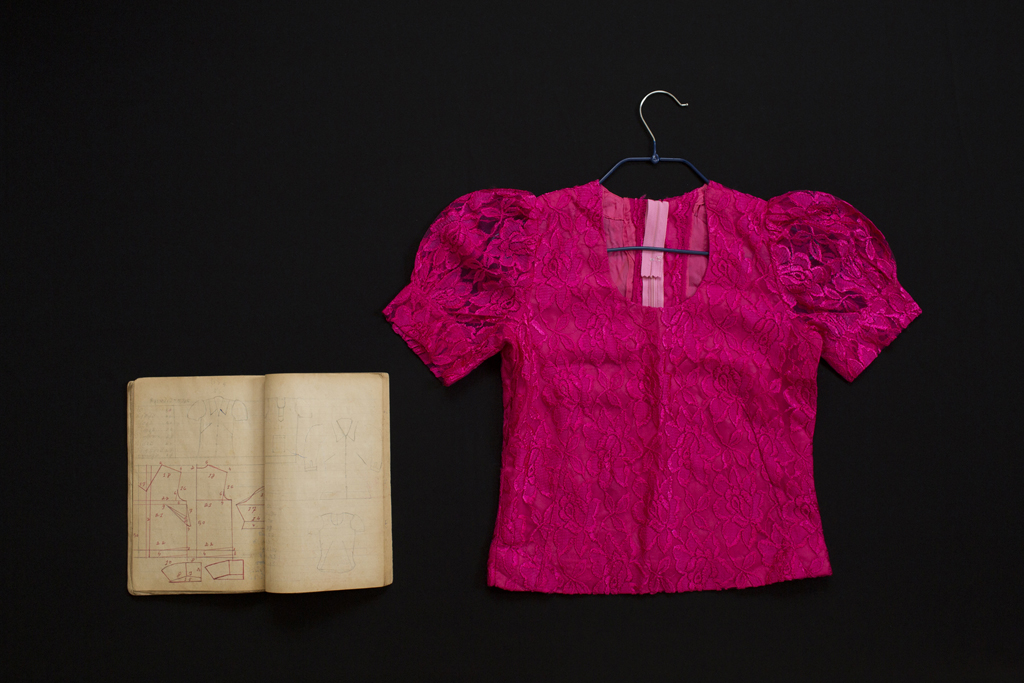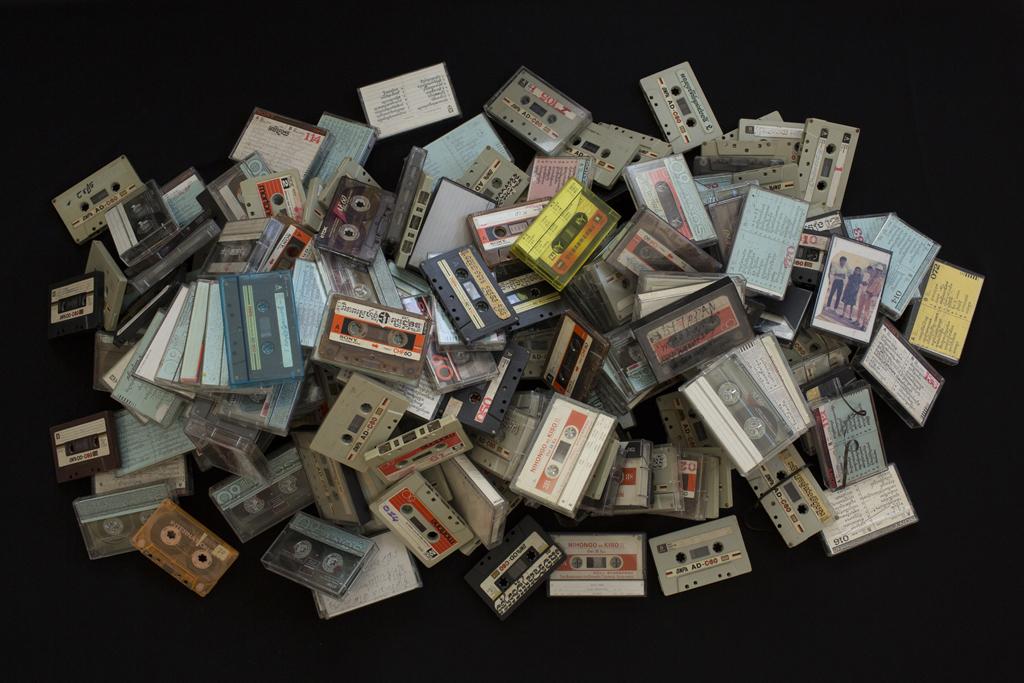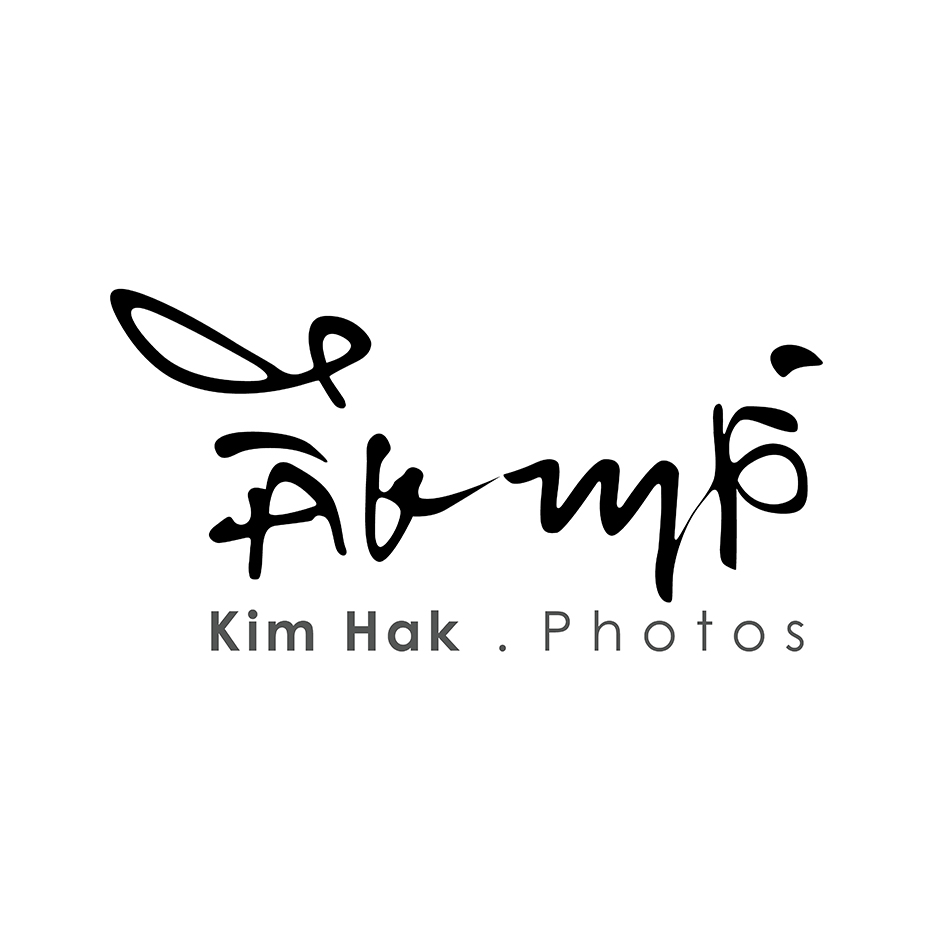Kim Hak's Alive IV comes to Tokyo and Yokohama
12 July 2022
Kim Hak's photographs tell us about a journey into memories, a journey bursting with great tenderness, despite the suffering it awakens.
— Rithy Panh (from the foreword to Alive III)

Rei Foundation Limited is proud to present Alive IV, an exhibition in Tokyo and Yokohama featuring new work from Cambodian artist Kim Hak. Alive IV presents approximately 40 photographs and accompanying texts that centre on the personal belongings of people who fled Cambodia during and after the civil unrest of the 1970s.
Many Cambodians were forced to flee their country to escape oppression, massacre and war under the Khmer Rouge regime of the 1970s. They left their homes with few possessions: only the most valuable or practical items were brought along on this difficult journey. Kim Hak, born in 1981, became interested in this period of history and the personal memories of what happened to his parents' generation, and in 2014 he started the project Alive by visiting survivors of the Khmer Rouge era and documenting their belongings and their stories. Beginning by interviewing his own parents, Alive has since developed into chapters in Brisbane, Australia in 2015 and in Auckland, New Zealand in 2018, creating opportunities for dialogue between individuals and generations about the experiences of survivors in these communities.
Many Cambodians were forced to flee their country to escape oppression, massacre and war under the Khmer Rouge regime of the 1970s. They left their homes with few possessions: only the most valuable or practical items were brought along on this difficult journey. Kim Hak, born in 1981, became interested in this period of history and the personal memories of what happened to his parents' generation, and in 2014 he started the project Alive by visiting survivors of the Khmer Rouge era and documenting their belongings and their stories. Beginning by interviewing his own parents, Alive has since developed into chapters in Brisbane, Australia in 2015 and in Auckland, New Zealand in 2018, creating opportunities for dialogue between individuals and generations about the experiences of survivors in these communities.
In 2020, Kim Hak travelled to Japan on a fellowship from the Japan Foundation Asia Centre with the goal of meeting and creating work with Cambodian communities, mainly in Kanagawa Prefecture. Alive IV, the fourth chapter in the series, is structured around the stories of 13 Cambodian families, which include both former international students unable to return to their country due to the turmoil in Cambodia in the 1970s, and those who came to Japan as refugees in the 1980s.
Their possessions, such as watches, family photos and earrings, operate as vessels for memories from their homeland, their journey to escape and their new country. Kim Hak visited with each family, taking time to listen to each person, and then documenting their objects and stories in photographs and text. The resulting photographs of each item emerge with dignity against a black background, shedding light on personal stories buried in the past, quietly and powerfully reflecting the resilience of those who have lived through this painful history. In this way, the exhibition aims to convey the importance of sharing memories of the past and connecting them to the future.
The exhibition is supported by Rei Foundation. We hope it will provide an opportunity for people of Cambodian descent in Japan to engage in dialogue about their histories, across generations, and for people of diverse backgrounds to better understand and accept each other across physical and cultural boundaries.
Their possessions, such as watches, family photos and earrings, operate as vessels for memories from their homeland, their journey to escape and their new country. Kim Hak visited with each family, taking time to listen to each person, and then documenting their objects and stories in photographs and text. The resulting photographs of each item emerge with dignity against a black background, shedding light on personal stories buried in the past, quietly and powerfully reflecting the resilience of those who have lived through this painful history. In this way, the exhibition aims to convey the importance of sharing memories of the past and connecting them to the future.
The exhibition is supported by Rei Foundation. We hope it will provide an opportunity for people of Cambodian descent in Japan to engage in dialogue about their histories, across generations, and for people of diverse backgrounds to better understand and accept each other across physical and cultural boundaries.

Artist’s Statement
Alive is a long-term photography project about memories that are tied to objects, particularly those memories and objects that bore witness to the Khmer Rouge regime and related Cambodian history.
Inspired by my own family’s objects, the kettle and buried family photos which my mother saved during the regime, I started this project, Alive, by recording my own family’s memories in 2014. Using photography as a means to capture memories, I decided to expand the project to work with other Cambodian families living inside Cambodia and then to the Cambodian diaspora who left their homeland to live in different parts of the world after the conflict. Most of the objects featured in my photography have been used by families before the war, during the Khmer Rouge regime, at the border camps, and then travelled on a long journey with the victims and survivors to new lands in host countries, some have continued to be used as everyday items. Each photograph contains a clue that leads to the true story behind each object. The items have been reclaimed, digging them out of the dirty land after the Pol Pot period, or they have been kept throughout the families’ lives.
Alive is a long-term photography project about memories that are tied to objects, particularly those memories and objects that bore witness to the Khmer Rouge regime and related Cambodian history.
Inspired by my own family’s objects, the kettle and buried family photos which my mother saved during the regime, I started this project, Alive, by recording my own family’s memories in 2014. Using photography as a means to capture memories, I decided to expand the project to work with other Cambodian families living inside Cambodia and then to the Cambodian diaspora who left their homeland to live in different parts of the world after the conflict. Most of the objects featured in my photography have been used by families before the war, during the Khmer Rouge regime, at the border camps, and then travelled on a long journey with the victims and survivors to new lands in host countries, some have continued to be used as everyday items. Each photograph contains a clue that leads to the true story behind each object. The items have been reclaimed, digging them out of the dirty land after the Pol Pot period, or they have been kept throughout the families’ lives.
About Kim Hak
Kim Hak was born in 1981 in Battambang City in the northwest of Cambodia, two years after the fall of the Khmer Rouge regime. He grew up listening to his parent’s memories of that time. Now, he uses his art practice to raise awareness of this country’s past – to remember, reclaim and reinterpret Cambodian social history from before, during and after the Khmer Rouge era.
Kim Hak’s work has explored a number of themes related to the cultural fabric of Cambodia, including survivor stories (with themes of memory, refugee camps, host countries, Cambodian diasporas, healing process, communities, humanity and renaissance), the funeral of King Sihanouk, architectural documentation and also the changing landscape of his homeland.
He has exhibited extensively throughout Asia, Oceania, Europe, Canada and the USA. His work has featured internationally at art and photography festivals and has been published in a number of prominent photography journals.
https://www.kimhak.com
Kim Hak was born in 1981 in Battambang City in the northwest of Cambodia, two years after the fall of the Khmer Rouge regime. He grew up listening to his parent’s memories of that time. Now, he uses his art practice to raise awareness of this country’s past – to remember, reclaim and reinterpret Cambodian social history from before, during and after the Khmer Rouge era.
Kim Hak’s work has explored a number of themes related to the cultural fabric of Cambodia, including survivor stories (with themes of memory, refugee camps, host countries, Cambodian diasporas, healing process, communities, humanity and renaissance), the funeral of King Sihanouk, architectural documentation and also the changing landscape of his homeland.
He has exhibited extensively throughout Asia, Oceania, Europe, Canada and the USA. His work has featured internationally at art and photography festivals and has been published in a number of prominent photography journals.
https://www.kimhak.com
Alive IV by Kim Hak
Spiral Garden, Tokyo
Friday 19 - Sunday 28 August 2022, 11:00-20:00
Free entry, open every day throughout the exhibition period
Spiral 1F 5-6-23 Minami Aoyama, Minato-ku, Tokyo
https://www.spiral.co.jp/topics/spiral-garden/kim-hak_alive_iv
Elevated Studio Site-A Gallery, Yokohama Venue
Friday 9 - Sunday 25 September 2022, 11:00-18:00
Free entry, open every day throughout the exhibition period.
1-6 Koganecho, Naka-ku, Yokohama City, Kanagawa Prefecture
Spiral Garden, Tokyo
Friday 19 - Sunday 28 August 2022, 11:00-20:00
Free entry, open every day throughout the exhibition period
Spiral 1F 5-6-23 Minami Aoyama, Minato-ku, Tokyo
https://www.spiral.co.jp/topics/spiral-garden/kim-hak_alive_iv
Elevated Studio Site-A Gallery, Yokohama Venue
Friday 9 - Sunday 25 September 2022, 11:00-18:00
Free entry, open every day throughout the exhibition period.
1-6 Koganecho, Naka-ku, Yokohama City, Kanagawa Prefecture
Social media
https://www.facebook.com/KimHak.Alive4/
https://www.instagram.com/kimhakaliveiv/
Enquiries
[email protected]
Organised by Rei Foundation Limited with the cooperation of FLAT LABO, ON THE TRIP Corporation, NPO Koganecho Area Management Centre and Alt Group. Venue cooperation from Wacoal Art Centre and support from The Japan Foundation.
https://www.facebook.com/KimHak.Alive4/
https://www.instagram.com/kimhakaliveiv/
Enquiries
[email protected]
Organised by Rei Foundation Limited with the cooperation of FLAT LABO, ON THE TRIP Corporation, NPO Koganecho Area Management Centre and Alt Group. Venue cooperation from Wacoal Art Centre and support from The Japan Foundation.
Return to Journal




